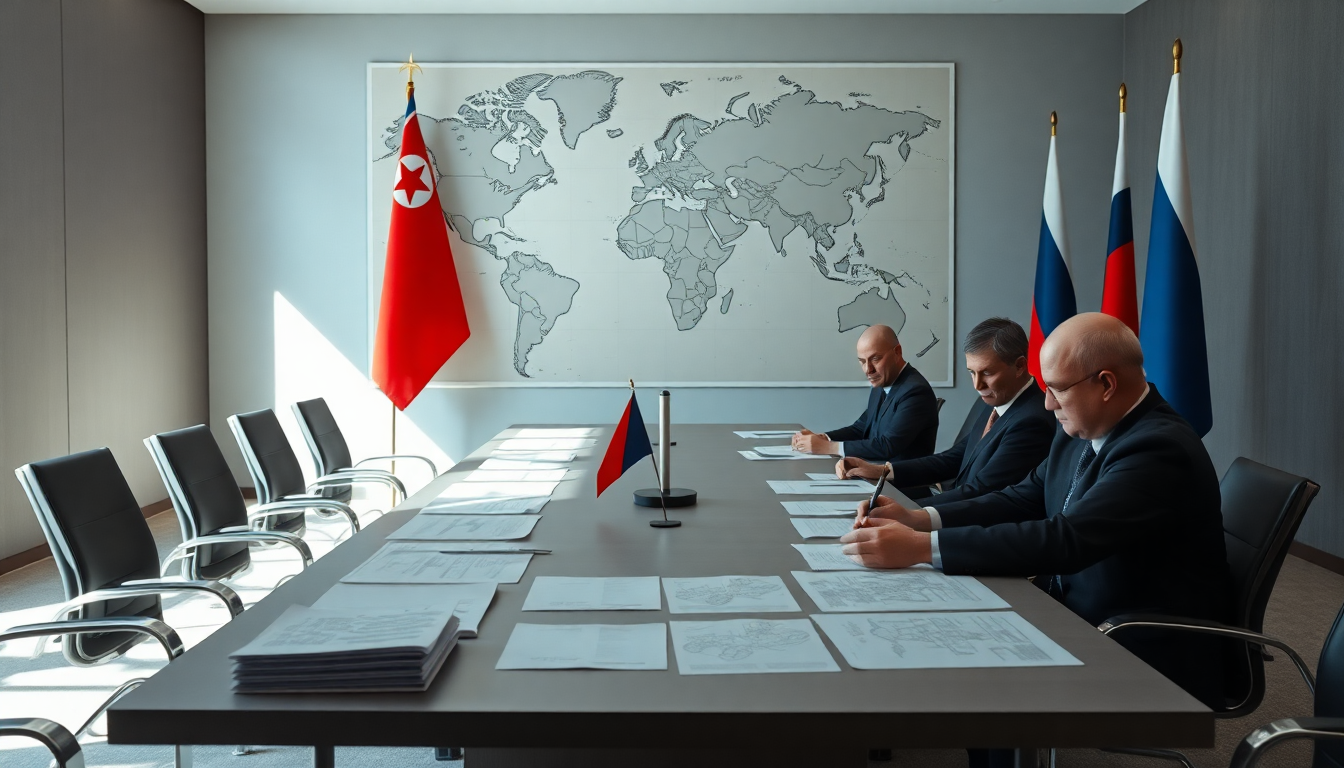Table of Contents
Have you ever wondered how alliances form in the shadows of global conflicts? The recent high-level meetings between North Korean leader Kim Jong Un and Russian Foreign Minister Sergey Lavrov reveal a significant and evolving partnership between Pyongyang and Moscow. As both nations grapple with severe sanctions and geopolitical pressures, their cooperation is strengthening, prompting us to consider what this means for international relations and global security.
Strategic Talks and Military Collaboration
During Lavrov’s three-day visit to North Korea, the discussions were all about boosting military cooperation and reaffirming a partnership treaty signed last year. This treaty isn’t just another piece of paper; it includes a mutual defense pact that indicates a strategic alignment beyond mere diplomatic niceties. Kim Jong Un’s public declaration of unconditional support for Russia’s actions in Ukraine sends a clear message of solidarity. Is North Korea positioning itself as a major player in the geopolitical arena?
In their meeting in the coastal city of Wonsan, Kim expressed confidence in the Russian military’s capabilities, insisting that the Russian army would achieve its objectives. This sentiment reflects a growing trust between the two nations, with North Korea not just offering verbal support but also tangible assistance in terms of troops and arms. Their historical relationship, especially during crises, underscores the significance of their current collaboration.
Geopolitical Implications of the Alliance
The evolving relationship between North Korea and Russia comes at a time when both countries are under intense scrutiny from the global community. The war in Ukraine, sparked by Russia’s invasion in February 2022, has reshaped alliances and introduced new geopolitical dynamics. North Korea’s backing of Russia might be seen as a strategic move to counterbalance Western influence and assert its position on the world stage. But what does this mean for the future of global politics?
Additionally, this growing partnership between two heavily sanctioned nations hints at a potential shift in the balance of power in East Asia. As Russia aims to solidify its presence in the region, North Korea’s military support could embolden Moscow’s actions. This alliance doesn’t just reshape the immediate geopolitical landscape; it also carries long-term implications for regional security, especially concerning the United States and its allies. Can we expect a redefined power structure in East Asia?
Future Prospects and Conclusion
Looking ahead, the future of the North Korea-Russia alliance seems promising, particularly with both nations eager to enhance their economic and military cooperation. Lavrov’s comments about initiating direct contacts soon highlight a commitment to ongoing dialogue, which could pave the way for further agreements and collaborations. As the situation in Ukraine continues to unfold, North Korea’s support may significantly influence Russia’s military strategy.
In conclusion, the partnership between North Korea and Russia, marked by mutual support and strategic alignment, poses a complex challenge for global security. The implications of this alliance stretch far beyond their borders, affecting international relations and potentially reshaping the geopolitical landscape for years to come. As we keep an eye on these developments, it’s crucial to consider the broader ramifications of such partnerships in an increasingly polarized world. How will these alliances shape our future?


